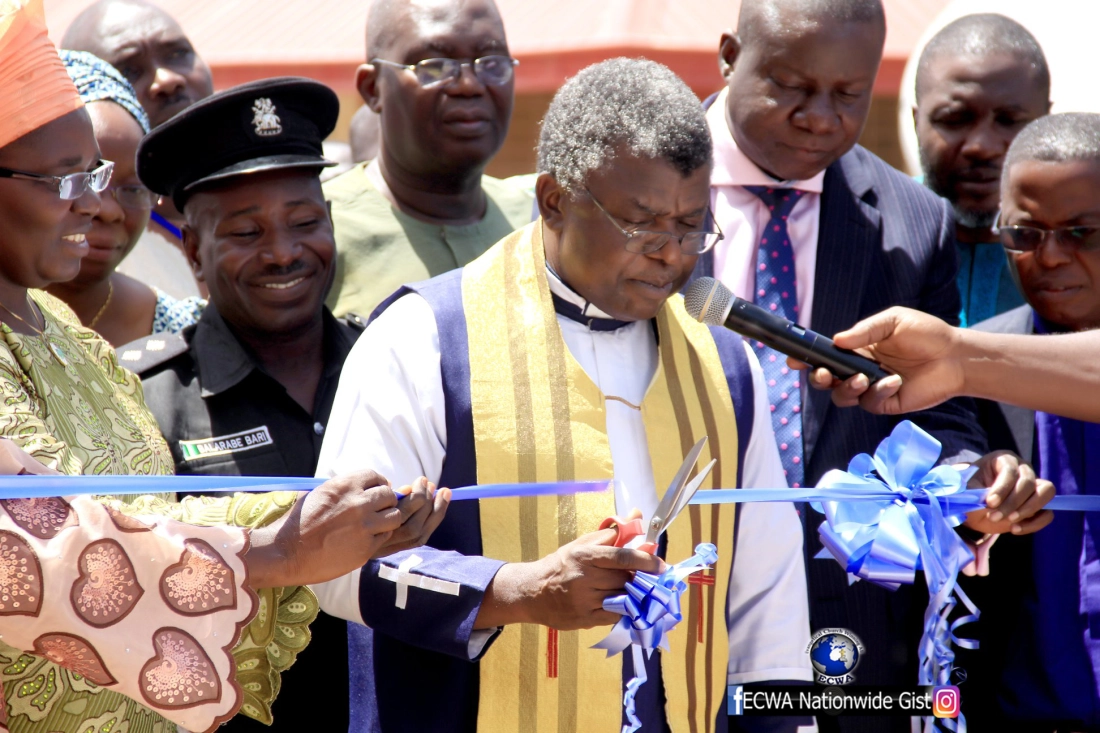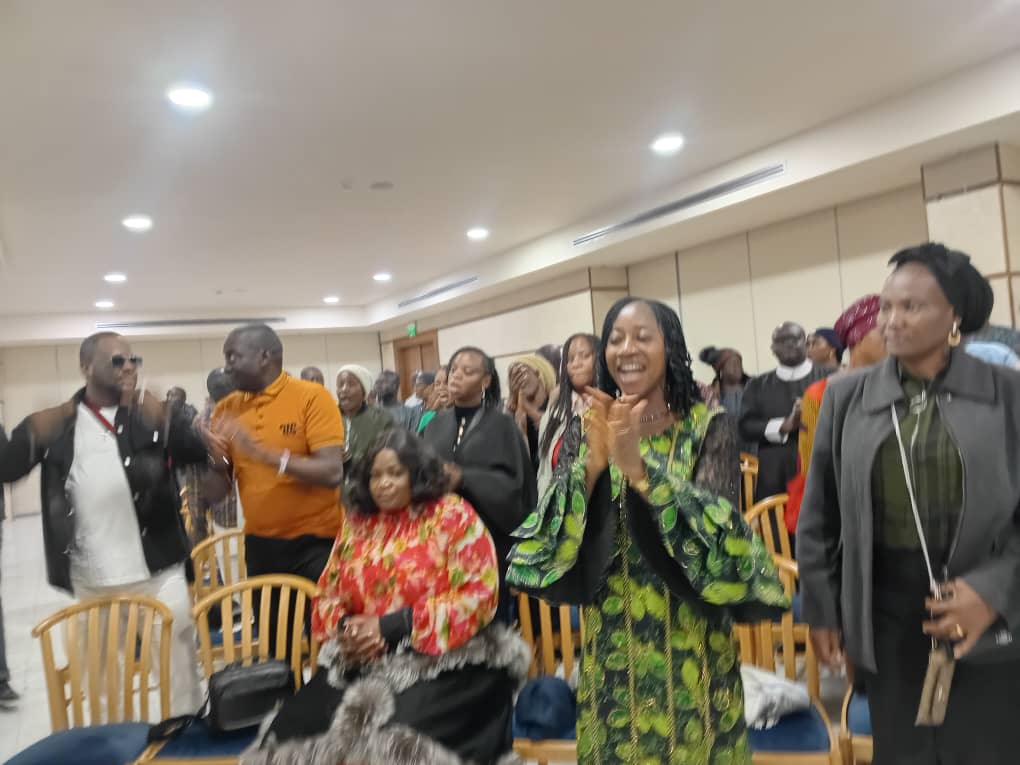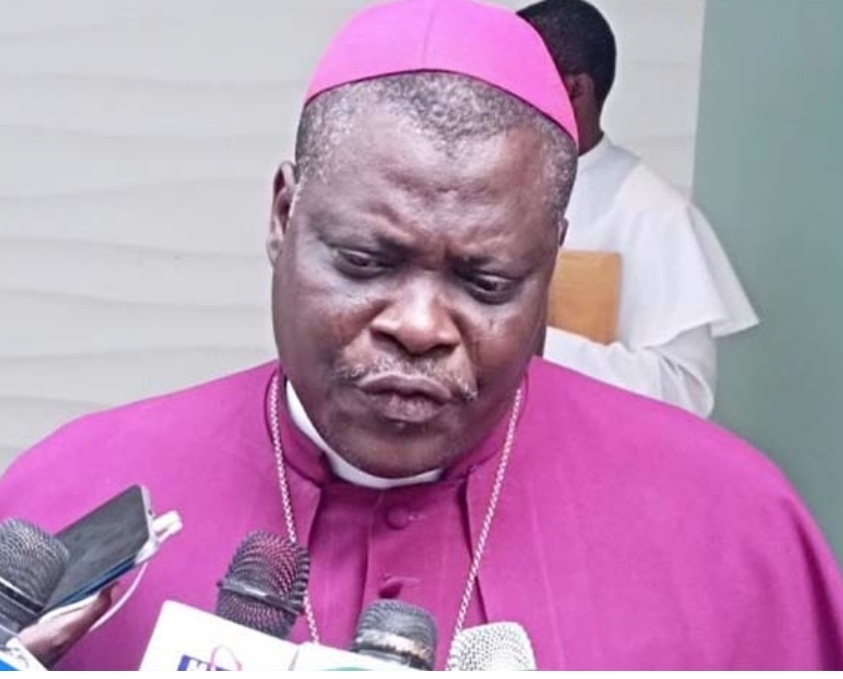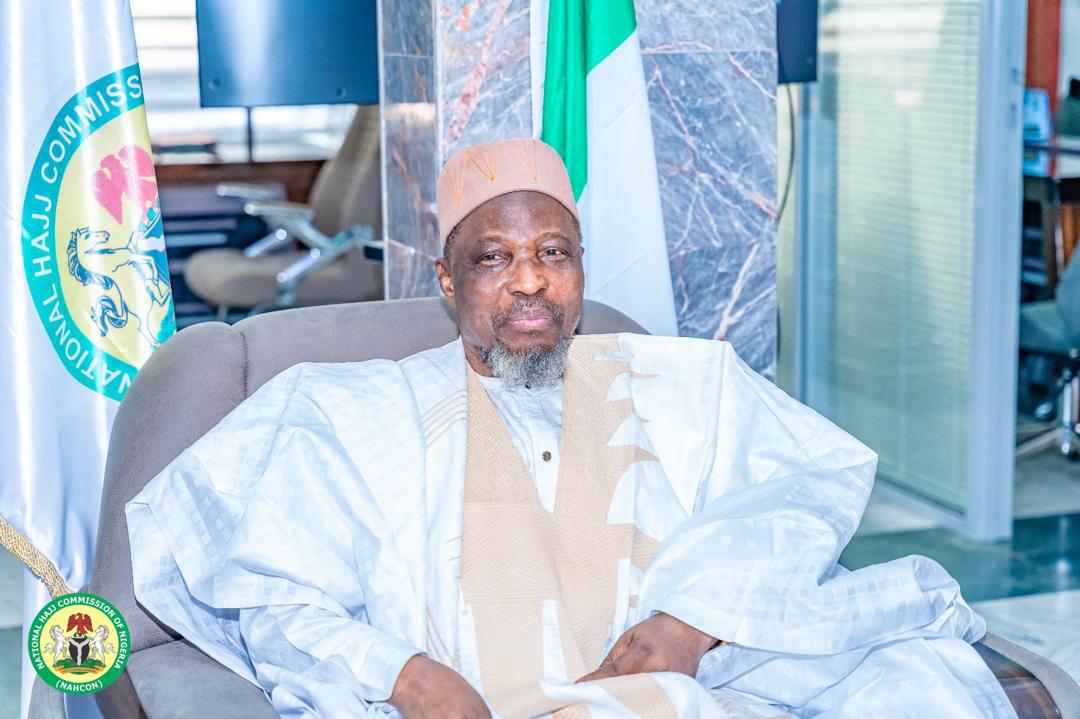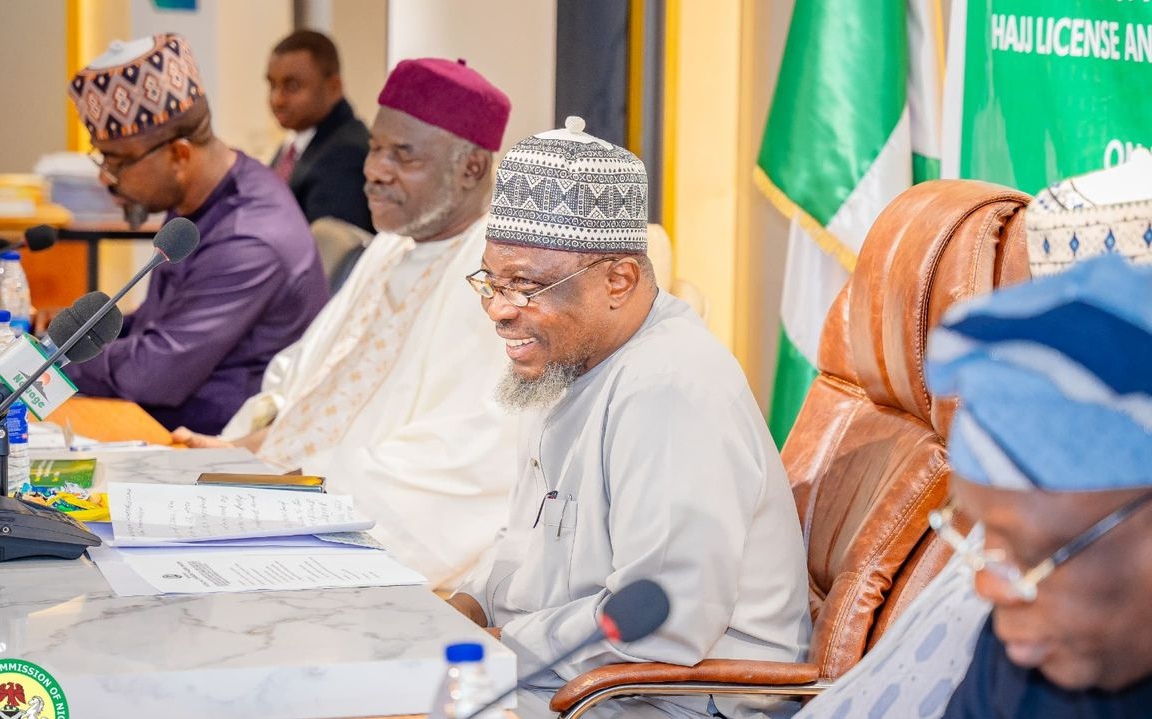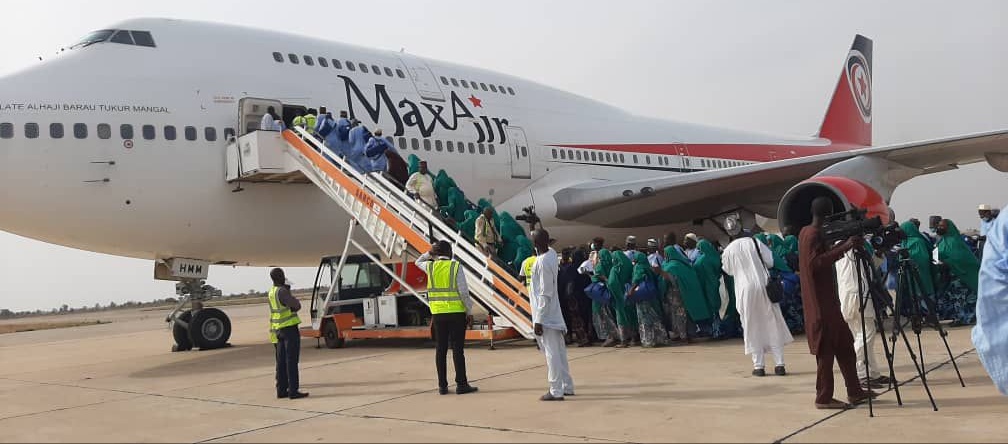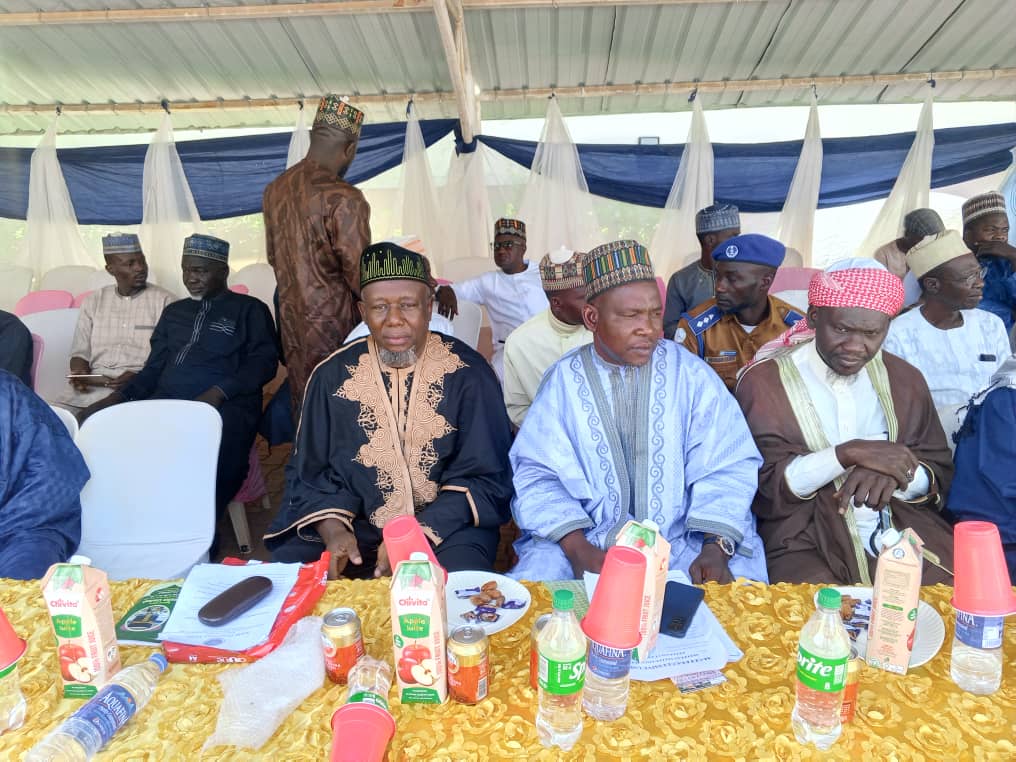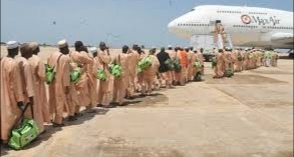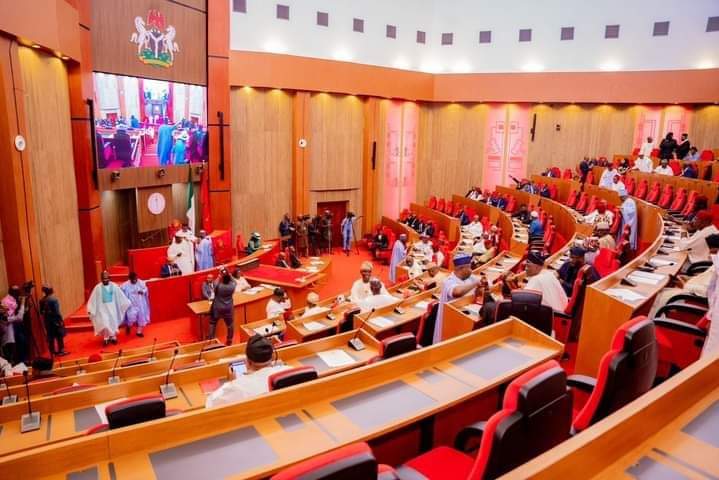By: Ibrahim Muhammad National Coordinator Independent Hajj Reporters muhasecond2@gmail.com
As highlighted in the first part of this piece, decentralization of the Hajj airlift to allow each state to choose its preferred airline was the major topic during the hearing. The states’ position stemmed from the seeming lapses and lack of synergy between NAHCON and State boards.
However, there are three sides to this policy: the advantages in terms of performance and ticket cost, safety and security, and the operational and logistical challenges involved. Fortunately, there have been instances in the past when the same issue of decentralisation of airlift became an issue.
Let’s rewind to look at the status of airlift before the Establishment of NAHCON and compare whether we have made progress in the Hajj Industry.
Status of Airlift of Pilgrims in the past Prior to the establishment of NAHCON, “Nigeria is the only country that airlifted its pilgrims behind schedules.
“It happened twice in 1971, in 1974, 1975, 1977. In 1978, inadequate provision of aircraft hampered the in-bound flight schedules It became almost an annual ritual that Nigeria had to plead, sometimes at residential level for the re-opening of Jeddah airport to it.
The outbound journey itself took the personal intervention of the Head of State, General Obasanjo to get it accomplished. Meanwhile, this was the year in which the number of pilgrims was halved (50,000) from the previous year’s number to ensure smooth operations
In 1982, in-bound airlift of pilgrims was complicated for the national carrier, Nigeria Airways, as it had to cater for the return journey of 31,000 international pilgrims in addition to the 50,000 officially approved by the Federal Government.
It was ill-prepared for this extra responsibility. According to Babatunde, “Nigeria came third in terms of number of pilgrims; we were number one in length of queues at the airport counters”.
These tormenting and frustrating queues, in his opinion, killed any morale left in pilgrims and sent them into angry demonstrations and mobbing of officials. In 1992 and then in 1994, the same problem still resurfaced.
A week after the pilgrims had all left Saudi Arabia; more than 30,000 Nigerian pilgrims (out of the official 38,000) were still stranded at the Jeddah airport.
Shortage of aircraft, shoddy arrangements and bureaucracy and above all, excess luggage was blamed for “the ugly spectacle of thousands of Nigerians huddled at the Jeddah airports”,.
Yet, there had been times when flights were delayed as aircrafts were waiting for intended pilgrims who failed to turn out.
This happened during Hajj 1982 when Nigeria Airways lost N80, 000 daily for such flights not made. “This seemingly intractable problem entered the 21st century with Nigeria even with more intensity.
Nigerian pilgrims were stranded in Saudi Arabia after Hajj in 2000 for more than two weeks. The inability of the local official airlines then: Trans Air and Kabo to airlift the pilgrims back home at the end of the pilgrimage forced the pilgrims who ran out of cash to sell their properties – electronics, jewelries, house-hold equipment and gift items – to feed”.
In the same year, reports mounted that stranded pilgrims were sleeping in the open field, contending with the biting weather, the Lagos State Government had to hire a foreign airline at a cost of N11.6 million to evacuate the 700 stranded pilgrims from the State. The State doubted the capability of Kabo Air, which was the approved official airline for the year’s Hajj. It asked for the decentralization of Hajj operations then”
So, the decentralization debate did not start today. This is an indication that there is nothing wrong in States Muslim Pilgrims Welfare Boards calls for involvement of States in selecting their preferred airline.
Such calls had also been made in 1978 after the abysmal Hajj operation. That year, the Saudi Arabian government decided “to assist the stranded Nigerian pilgrims to bring them home”. This humanitarian gesture on the part of the Saudis was apparently meant to remove the embarrassment from its shores,
In any case, the Saudi Arabian government considered blacklisting two Nigerian airlines from the airlift of 2001 pilgrims.
Saudi authorities wrote the Nigerian Government banning two of the airlines for poor performance in Hajj operations. They frowned at the way and manner the airlines abandoned pilgrims and their luggage in Saudi Arabia after Hajj 2000.
Yet, pilgrims were stranded in Saudi Arabia after Hajj 2001 with irate pilgrims beating up Hajj officials and holding them hostage as reported by Daily Times, March 21, 2001. And yet, thousands of intending pilgrims were stranded in 2004 with delays of their outbound flights across the country.
The Unpropitious Record Of 2006 Hajj Airlift. Historically, airlift of pilgrims is the bane of Nigeria’s Hajj operation.
The worst case perhaps was Hajj 2006 when 18.14 % of Nigerian pilgrims, (i.e. 10,500 out of the 57,870 pilgrims) could not make the Hajj due to the failure of the airlines to lift pilgrims for the outbound journeys This event was the topic of The Guardian, Editorial of January 20, 2006.
Sometimes a contracted airline company does not have aircraft. It goes to contract another airline, sometimes one of the airlines already contracted. This is part of what caused confusion and delays in the past.
Secondly, many pilgrims from Kano, Lagos and Maiduguri – the large pilgrims’ centers then – are traders and therefore always have excess luggage.
Third, sometimes, pilgrims are not available to board at the appropriate time. These VIP pilgrims appear last to be airlifted on the outbound trip, but they want to be the first to be airlifted for the inbound journey. All these disrupt arrangements and cause enormous chaos.
Hajj 2006 was the worst in the history of Hajj operations in Nigeria. More than 10,000 intending pilgrims could not make the Hajj. Equally disappointed were other thousands of pilgrims who registered with registered tour operators.
Ironically, it was perhaps the most well-planned Hajj so far too. According to Prof. Gwandu, Chairman, Technical Hajj Committee (THC), what happened was simply an act of God. Perhaps their best was simply not good enough.
But the DPA did meticulously search for airlines, screened them, involved the States’ Boards in the whole process and got approval for them from Saudi authorities and there was no cause for alarm.
Yet, the worst happened that year. Interestingly, “none of the three local carriers had enough aircrafts available as agreed and as at when due.
The air crashes that happened around that time, involving Belview and Sosoliso airlines, put the Aviation Ministry on edge and the Nigerian Civil Aviation Authority (NCAA) was uncompromising”.
“Saudi authorities also insisted on the installation of a safety devise, Enhanced Ground Proximity Warning System (EGPWS). All these complicated the airlifting process.
But all said, thousands of Nigerian pilgrims were stranded and traumatized. The 36-hour extension which President Obasanjo got from the Saudi authorities by which aircrafts carrying Nigerian pilgrims could land till 8.00am Saudi time, on Friday January 6, 2006 did not help the situation”.
Interestingly, the then Governor Modu Sheriff of Borno State, and Governor Ahmed Bola Tinubu of Lagos State called for decentralizations of airlift as reported by The Guardian of January 11, 2000.
The two governors eventually intervened then and got many pilgrims in their respective states airlifted to Saudi Arabia. At the end of the Hajj exercise, 4000 Nigerian pilgrims were still stranded at the Jeddah airport.
History is alive. It was in response to the failures in airlift operations and the general outcry that followed that compelled the then Obasanjo’s administration to initiate the Nigerian National Hajj Commission Bill 2006 which the Senate eventually passed into law with the Commission taking off effectively in 2007.
The bill repealed the Nigerian Pilgrims Act of 1989. There is a moral factor to all of this. Positive work ethics is paramount in the success of any operation and proffering solutions to operational challenges.
The basis of this historical analysis is for us to understand that the main challenges that gave birth to NAHCON are the issue of previous failures in the Hajj Airlift and to appreciate the improvements recorded since then.
The second is for us to appreciate that there is nothing weird in States canvassing to be part of the process because of the Federalism structure we operate.
The third is to change our mindset to be more result-oriented in the task of hajj administrations as opposed to concentrating on ‘what is in for me’ that has brought us to public ridicule.
Additional material sourced from research conducted by, Jamiu Adewumi Oluwatoki of the Department of History and International Studies, Lagos State University.
